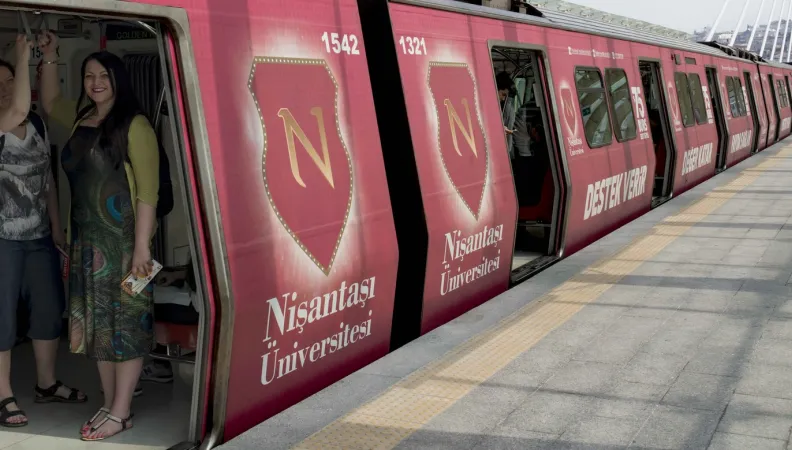Share the page
The Link between Gender Equality and Safe Public Transportation
Published on

What if a metro, bus or tramway line could help promote gender equality? If well thought out and designed, urban transport can become a powerful lever for women's safety and empowerment. In Türkiye, as in other countries, AFD is taking gender into account in the mobility projects it finances.
Gender and transportation
Around the world, women are exposed to physical aggression, sexual harassment and other forms of unwelcome behavior in public transport. Violence against transport workers is one of the main reasons why it is difficult to recruit or retain female employees in the sector.
“In public transport, gender is not a neutral issue,” says Tanguy Denieul, Country Director for AFD in Türkiye.
Promoting transportation safety and the employment of women in a traditionally male sector is a mutually reinforcing strategy: with more women participating in the design and building of transportation systems, trains, metros and bus lines are likely to be safer.
Building a new public transport line can indeed have an impact on female commuters who need safe, affordable travel options as well as on job seekers who want equal access to employment, whether as drivers, security guards or ticket officers.
In Izmir, the municipality has implemented several measures to combine mobility and gender equality. In 2022, AFD designed a technical assistance programme to support these measures and encourage dialogue in several cities, including Ankara.
Thanks to its expertise in this area, AFD is carrying out urban transport projects that contribute both to the transition towards a low-carbon society and to the evolution of a fairer and more inclusive society in Türkiye.
Watch the video "Towards gender equality in urban mobility in Türkiye"
Rethinking mobility and the city by and for women
From awareness campaigns to the feminization of jobs, AFD supports many mobility projects that place women at the heart of their thinking.
- "Safe transport is a right!" this is the slogan of the awareness campaign launched in Tunisia at the end of 2021 to combat violence against women on public transport. One woman in four claims to have been a victim of violence on public transport, according to the Tunisian Centre for Research, Studies, Documentation and Information on Women (CREDIF).
- In Morocco, the Rabat-Salé tramway project has had a positive impact on women's access to public transport.
- The construction of the Kochi metro in southern India has resulted in better air quality and a higher standard of living and recognition for women. The metro is staffed by 75 percent women, from cleaners to train drivers. Of the 774 women hired for the launch of the metro, 600 came from poor families and were recruited through local self-help groups.
- On the crowded streets of Lagos, Nigeria, Bus Rapid Transit makes it easier for women in particular to travel safely, easily and comfortably at a reasonable price. Women traders who need to carry goods, as well as female students who commute to school every day, now prefer to use public transport. Women also hold decision-making positions, including executive director, in the transport company that runs the line, the Lagos Metropolitan Area Transport Authority (LAMATA). They are also present at all levels of responsibility in the company: operators for the control center, drivers, mechanics, etc.
More broadly, AFD is doing its utmost to integrate the gender issue into its urban development projects. In 2021, AFD adopted a new guide to strengthen the promotion of gender equality in the urban development projects it supports.
In the CITIIS program, which involves 12 Indian cities, four are developing gender action plans to better take into account the specific needs of women in the design of projects that are rehabilitating precarious neighborhoods, modernizing schools, and redeveloping public spaces.
